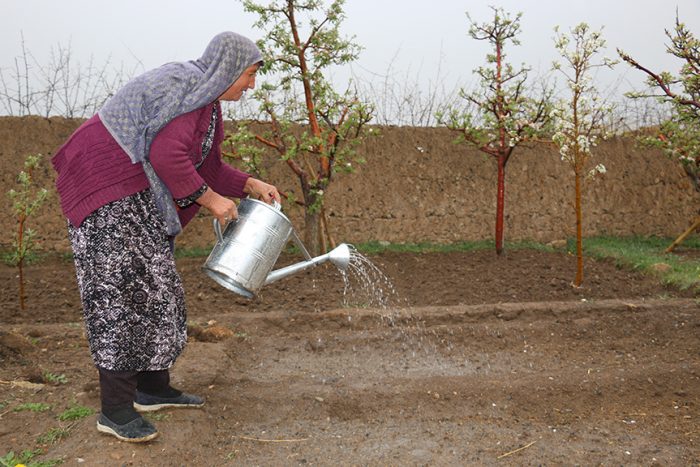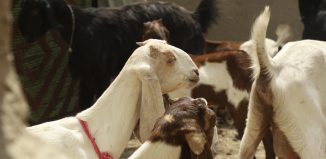Food & Hope for deprived crisis-affected women and communities in Afghanistan
In Afghanistan, agriculture continues to be the backbone of the rural economy – about 70% of the population in rural areas is engaged in on-farm activities. Rural women play an imperative role in agriculture and food security, and hold the potential to lift their households as well as their communities out of poverty. In the developing world, women comprise over 40 percent of the agricultural workforce (FAO). Since Afghan women often stay in the home and out of public view, we must not lose track of their needs when considering how we approach humanitarian action in Afghanistan.
In a culture where women bear the brunt of the effects of food insecurity, often feeding their families before themselves, there is a double imperative to support local production, particularly for women-headed households. Women need extensive training to improve their skills. Capacity building initiatives are pivotal to help enhance community understanding and ensure target communities’ learn new skills and recognise the important role that women can play in these activities. Shakila, a local farmer from Bamyan’s Qala Shah Akram village, has been farming since she was 15 years old. “I had a strong desire to become a farmer. I feel that as women, who are responsible for cooking and feeding our families, we have an important role in agriculture. My husband and I make AFN 70,000 (Approx. USD 800) every year from our two-acre farm, where we grow potatoes, wheat, and different vegetables,” Shakila explained.
Shakila was given the opportunity to participate in a capacity-building activity in Bamyan as part of Community World Service Asia and Japan Platform’s humanitarian assistance projectⁱ. “We learned about seasonal vegetation development, fertiliser application, seed treatment, pest and disease control, irrigation techniques, and sustainable farming practises during the kitchen gardening training in March 2022. We also spoke about ways to conserve and use available resources without harming the ecosystem.”
Shakila prepared a plot of land after returning from the training to set up a food garden in her yard. “Many people living in rural areas have limited access to a variety of foods. The kitchen gardens will provide us the opportunity to add diversity in our meals.” Shakila also shared her learnings from the training with 19 other women in her village. “I feel that every woman should have this information since it will help her family and the environment in the long term. The vegetables and fruits cultivated in the garden will enable families to meet their nutritional needs while also provide an additional income from the surplus they sell in the market,” added Shakila.
Shakila is a role model for many women since she is actively involved in farming activities with her husband as well as working on her kitchen garden. Women come to Shakila for advise on agricultural methods and resource utilisation since she has extensive expertise in the field of agriculture and is trained in kitchen gardening. She now has hope for a better future and has decided to extend her gardening activities to earn a wholesome livelihood. Under the project, Shakila has received different kinds of vegetable seeds, such as spinach, coriander, onion and tomato after the training. In addition, she was also given a tool kitⁱⁱ that proved to be very helpful in setting up the green garden.
The project’s Kitchen Gardening activities have empowered 450 women living in remote areas of Bamyan by providing them an alternative food security and livelihood source. It has enabled women to participate in sustainable agricultural and income-raising activities for their families and increased their role in household decision making. These women feel empowered and accomplished by producing high quality and healthy vegetables and fruits and improving the nutritional status of themselves and their families in the comfort of their homes. “The women taking part in kitchen gardening have learned a lot about vegetables and they have better harvests now,” concluded Shakila.
ⁱ ‘Emergency response to improve food security and build resilience of climate affected families including IDPs and returnees in Bamyan, Afghanistan’
ⁱⁱ The tool kit includes Spade, hoe, shovel, sprinkler and plastic to cover the vegetable in a severe cold.







